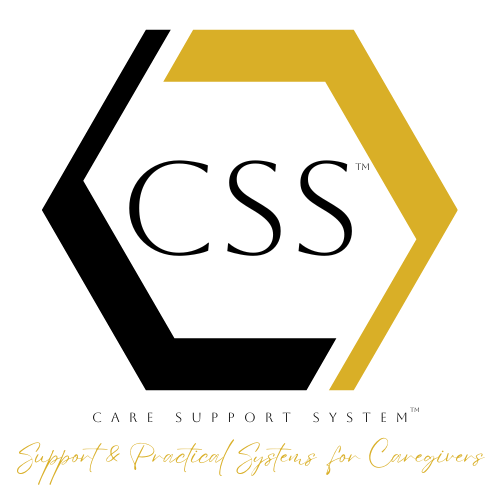SPEAKING
I speak to people who are walking through hard, often unseen seasons of life — caregiving, disability, grief, loss, burnout, and everything in between. My talks are grounded in real life: the laughter, the heaviness, the questions, and the quiet resilience that shows up when life doesn’t go as planned.
I don’t offer quick fixes or polished answers. I share my story honestly and meet people where they are, with the hope of helping them move from isolation and overwhelm toward steadiness, meaning, and hope.
FREEBIES & rESOURCES
I also love speaking to groups of all sizes, sharing my life story—from the laughs to the hard moments—to uplift, inspire, and help women journey
from desolation to hope. If you don’t see the topic you’re looking for, feel free to reach out—I’d love to chat and tailor something just for you!

Parents, Caregivers, and Medical Professionals
Setting Up Your Own Care Support System™:
Whether you’re caring for a loved one or advocating for your own medical needs, managing medications, appointments, therapies, treatments, paperwork, and planning can quickly become overwhelming. When everything lives in different places, it’s easy to feel buried in the details.
This workshop offers clear, practical strategies to organize medical information, documents, and day-to-day logistics in a way that actually works in real life. I’ll walk participants through simple systems they can adapt to their own needs, share helpful resources, and create space for questions, discussion, and personalized guidance.
For medical professionals:
If you’re looking for a way to better support your patients or clients — whether they are caregivers or self-advocates — the Care Support System™ can be offered in a group setting. Group rates are available, and I’m happy to come to you to help patients learn how to use the system in a way that supports clarity, confidence, and continuity of care.


Parents & Caregivers:
Raising a child with disabilities means wearing many hats—parent, caregiver, nurse, therapist, friend, and more—which can quickly become overwhelming. I’m here to help parents set up practical, affordable support systems that bring a little more breathing room and help them focus on what truly matters. A diagnosis doesn’t have to define your life; together, we’ll navigate this journey in sustainable, manageable ways. Below are options for breakout sessions and keynote talks designed to offer real support.
Navigating the Messy Caregiver Emotions:
Raising a child with disabilities brings a flood of emotions—from guilt and jealousy to fear. In this workshop, we’ll name and embrace these feelings, transforming them into tools for finding joy and hope. I’ll share practical strategies for managing these emotions along the way, as well as insights from my book The Other Side of Special, written with my cohosts to help others balance family, self, and faith.
The A.B.C.’s of Surviving Disability Parenting:
This workshop covers three essential pillars: Accepting the diagnosis, Being present in the moment, and Caring for yourself. We’ll discuss practical, sustainable approaches to focusing on these fundamentals and how they benefit you, your child, and your family as a whole.
Advocacy for the Disability Parent:
Advocating for your child doesn’t have to be intimidating—it’s about showing up in everyday moments. This session provides ideas and resources for advocating at school, family gatherings, church, and beyond. Together, we’ll discuss ways to empower your child to self-advocate as well.
Inclusion, Not Entitlement:
Fostering inclusion for children with special needs is crucial, but so is helping them thrive without entitlement. This workshop covers practical ways to encourage accountability, realistic goals, and a healthy sense of individuality.
Sibling Support:
Finding time for all of our children can be challenging, especially with a full caregiving load. But our kids don’t need huge amounts of time—they need meaningful moments. In this session, we’ll explore ways to help every child feel seen and valued, sharing strategies that work for families with tight schedules.

Disability Ministry and the Church:
Present over Perfect:
Supporting families with special needs doesn’t require a big budget. This session walks through impactful, affordable ways your church can show up and make a difference in your community.
Elders, Staff, and Leadership:
Churches often hesitate to launch special needs ministries, fearing they aren’t equipped. But your greatest asset is your people. I’ll share five powerful ways to support special needs families, using the gifts you already have.
Ways to Start and Grow a Disability Ministry:
There’s no need to reinvent the wheel when it comes to disability ministry. This session offers practical tips to launch and expand a ministry that fits your church’s budget and resources.
Your Church Needs Members AND Volunteers With Disabilities: Here’s Why!
Discover how disability outreach can enrich your church and community, and learn ways members with disabilities can serve and help your congregation grow. Jesus calls all of us to contribute, and utilizing the strengths of those with disabilities is a vital part of that mission.

Education
For Both Parents and Educators:
There’s often a gap between parents, guardians, caregivers, and educators of children with disabilities, yet everyone has a crucial role in helping the child thrive. When parents, students, and teachers work together, amazing things happen. I enjoy speaking with both educators and parents to build positive, productive communication that serves each child best.
For Parents and Guardians:
10 Things Your Child’s IEP Team Needs to Know About Your Child:
You know your child better than anyone—their strengths, their challenges, what makes them unique. In this workshop, I’ll provide handouts and resources to help you share this insight with your child’s IEP team, so they can better support your child’s growth. Together, we’ll explore ways to collaborate with the educational team, not work against them.
Getting Your Child Involved in Extracurricular Activities:
In a world growing in acceptance and inclusivity, extracurriculars are now for everyone—not just the athletes or academics. In this session, we’ll talk about the value of getting your child involved and ways to help them connect with their peers. Participants will also have a chance to share their successes and struggles in finding activities that fit.
Advocating for Your Child’s Needs Confidently and Courteously:
At some point, you’ll disagree with your child’s educational team—it’s normal, and a conversation will be needed. But how do we approach this without alienating those who are there to support our child? In this session, I’ll share personal insights on navigating these conversations gracefully yet assertively. We’ll discuss ways to manage triggers and keep discussions productive.

For Educators:
Beyond the IEP: Supporting Children In and Out of School:
You want your students to thrive, but how can you support them both inside and outside the classroom? It’s time to think beyond the IEP. In this session, I’ll share insights from my experience across multiple schools and IEP teams, showing ways you can become a child’s biggest advocate and build trust with their parents.
5 Ways to Communicate Positively with Special Needs Parents:
It’s no secret—parents of children with special needs can sometimes seem intense, but they’re advocating for their child. In this session, I’ll share five strategies for communicating with parents in a positive, assertive, and productive way, demonstrating that you’re on the same team. Participants can also share stories or challenges to find practical solutions together.
3 Reasons Parents Might Miss IEP Meetings and How to Change That:
While we’d love every parent to be engaged, it’s not always the reality. But some parents may want to be involved—they’re just held back by miscommunication, lack of time, or not knowing how to contribute. In this workshop, we’ll explore ways to reach these parents and encourage their involvement.
Empowering All Students to Advocate for Peers with Special Needs:
Teaching compassion and advocacy starts early. As a parent of a child with complex needs, I’ve seen how the kindness of a peer can lift a classroom environment. This session walks through ways educators can empower students to support and advocate for classmates with special needs, building a classroom culture that values everyone.
Let’s Connect!
Visit my website to learn more about my services and see how I can help you reclaim your time and rediscover your joy. Reach out today—I’d love to partner with you!
